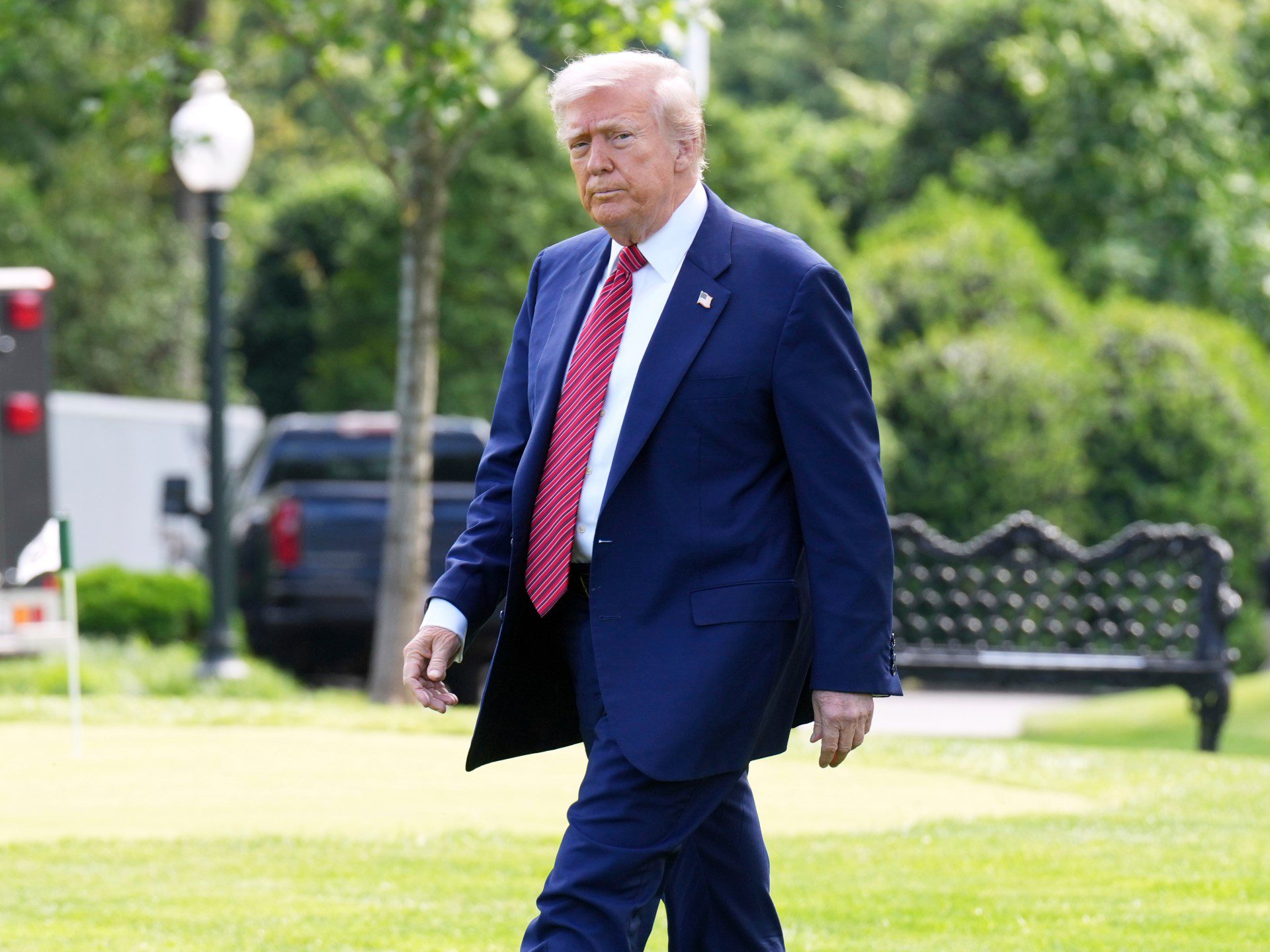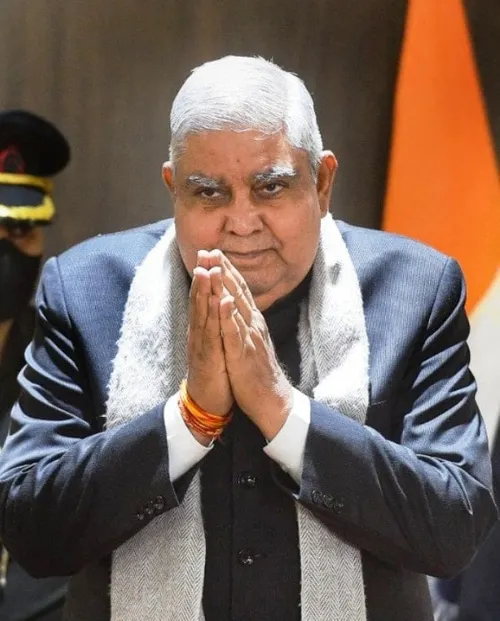A federal appeals court has temporarily reinstated (PDF) US President Donald Trump’s tariffs a day after a trade court ruled that it exceeded the authorities granted to the president.
The United States Court of Appeals for the Federal Circuit in Washington temporarily blocked the lower court’s decision on Thursday, but provided no reasoning for the decision, only giving the plaintiffs until June 5th to respond.
The Court of Appeals for the Federal Circuit granted an emergency motion from the Trump administration arguing that a halt is “critical for the country’s national security”.
The White House has applauded the move.
“You can assume, even if we lose tariff cases, we will find another way,” trade adviser Peter Navarro said.
Wednesday’s surprise ruling by the US Court of International Trade had threatened to halt or delay Trump’s “Liberation Day” tariffs on most US trading partners, as well as import levies on goods from Canada, Mexico and China related to his accusation that the three countries were facilitating the flow of fentanyl into the US.
The International Court of Trade said tariffs issued under the International Emergency Economic Powers Act (IEEPA), which is typically used to address issues of national emergencies rather than addressing the national debt, were considered overreach.
Experts said the IEEPA, which was passed in 1977, is narrow in scope and targets specific countries, US-designated “terrorist organisations”, or gang activity pegged to specific instances. The US, for example, used the law to seize property belonging to the government of Iran during the hostage crisis in 1979 and the property of drug traffickers in Colombia in 1995.
“The 1977 International Emergency Economic Powers Act doesn’t say anything at all about tariffs,” Bruce Fain, a former US associate deputy attorney general under Ronald Reagan, told Al Jazeera.
Fein added that there is a statute, the Trade Expansion Act of 1962, which allows tariffs in the event of a national emergency. However, he said, it requires a study by the commerce secretary and can only be imposed on a product-by-product basis.
‘Product-by-product’
Despite the appeal court’s reprieve, Wednesday’s decision has been viewed as a blow to the administration’s economic agenda that has thus far led to declining consumer confidence and the US losing its top credit rating.
Experts believe that, ultimately, the tariffs will not last.
Posting on X, formerly known as Twitter, on Thursday, lawyer Peter Harrell, a fellow at the Carnegie Endowment for International Peace, wrote that, if the trade court’s decision “is upheld, importers should eventually be able to get a refund of [IEEPA] tariffs paid to date. But the government will probably seek to avoid paying refunds until appeals are exhausted.″
“The power to decide the level of tariffs resides with Congress. The IEEPA doesn’t even mention raising tariffs. And it was actually passed in order to narrow the president’s authority. Now the president is using it to rewrite the tariff schedule for the whole world,” Greg Schaffer, professor of international law at Georgetown Law School, told Al Jazeera.
The US trade court did not weigh in on tariffs put in place by other laws, such as the Trade Expansion Act – the law used to justify tariffs on steel, aluminium, and automobiles.
There are additional targets for similar narrow tariffs, such as pharmaceuticals from China. In April, the White House announced that the US Department of Commerce launched an investigation to see if the US reliance on China for active ingredients in key medications posed a national security threat, thus warranting tariffs.
“This is not an issue of whether the president can impose tariffs,” said Fein, the former associate deputy attorney general. “He can under the 1962 act after there’s a study and after showing that it’s not arbitrary and capricious and that it’s a product-by-product, not a country-by-country approach.”
“If he doesn’t like that, he can ask Congress to amend the statute.”
Anurag Dhole is a seasoned journalist and content writer with a passion for delivering timely, accurate, and engaging stories. With over 8 years of experience in digital media, she covers a wide range of topics—from breaking news and politics to business insights and cultural trends. Jane's writing style blends clarity with depth, aiming to inform and inspire readers in a fast-paced media landscape. When she’s not chasing stories, she’s likely reading investigative features or exploring local cafés for her next writing spot.






